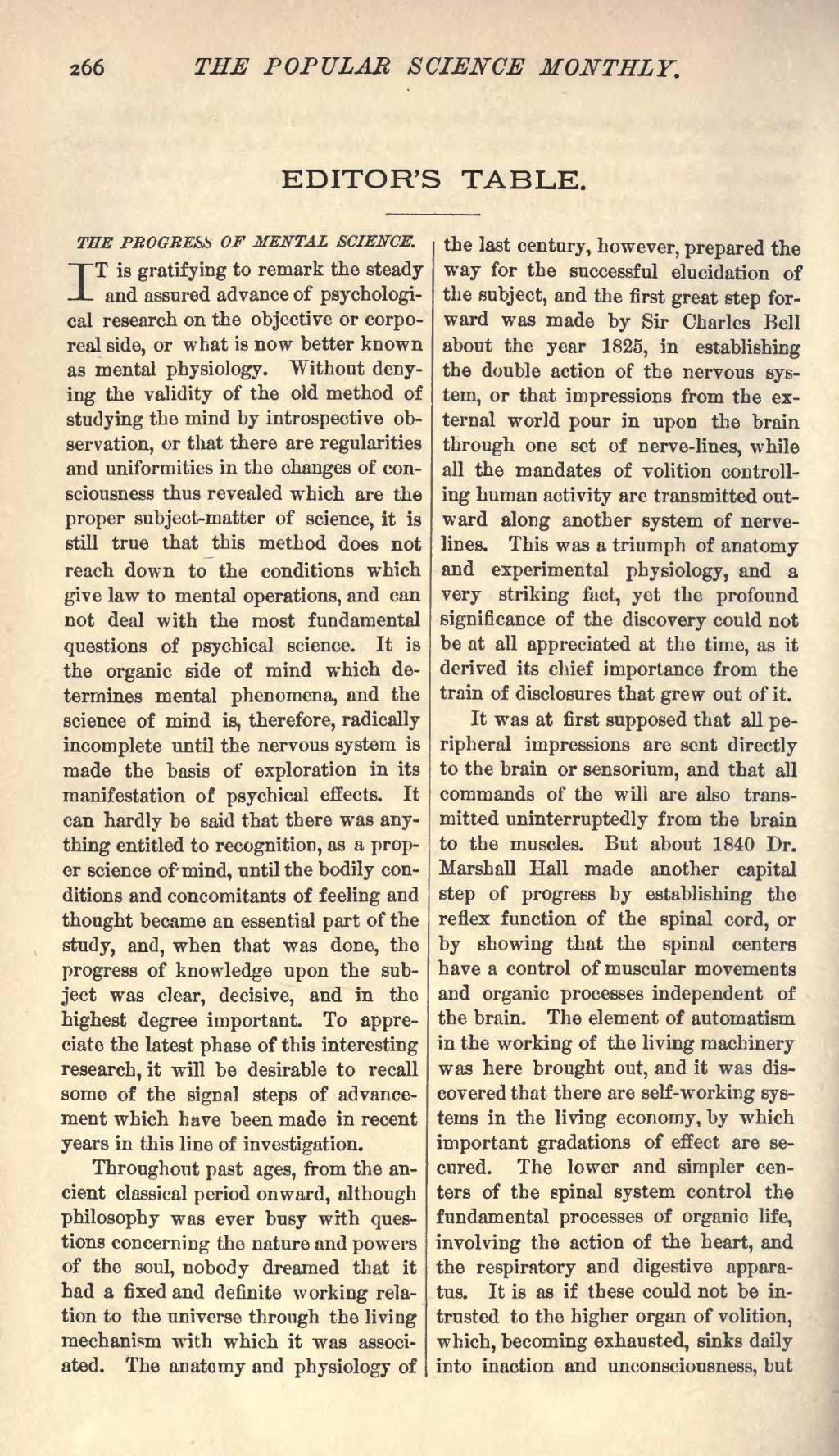THE PROGRESS OF MENTAL SCIENCE.
IT is gratifying to remark the steady and assured advance of psychological research on the objective or corporeal side, or what is now better known as mental physiology. Without denying the validity of the old method of studying the mind by introspective observation, or that there are regularities and uniformities in the changes of consciousness thus revealed which are the proper subject-matter of science, it is still true that this method does not reach down to the conditions which give law to mental operations, and can not deal with the most fundamental questions of psychical science. It is the organic side of mind which determines mental phenomena, and the science of mind is, therefore, radically incomplete until the nervous system is made the basis of exploration in its manifestation of psychical effects. It can hardly be said that there was anything entitled to recognition, as a proper science of mind, until the bodily conditions and concomitants of feeling and thought became an essential part of the study, and, when that was done, the progress of knowledge upon the subject was clear, decisive, and in the highest degree important. To appreciate the latest phase of this interesting research, it will be desirable to recall some of the signal steps of advancement which have been made in recent years in this line of investigation.
Throughout past ages, from the ancient classical period onward, although philosophy was ever busy with questions concerning the nature and powers of the soul, nobody dreamed that it had a fixed and definite working relation to the universe through the living mechanism with which it was associated. The anatomy and physiology of the last century, however, prepared the way for the successful elucidation of the subject, and the first great step forward was made by Sir Charles Bell about the year 1825, in establishing the double action of the nervous system, or that impressions from the external world pour in upon the brain through one set of nerve-lines, while all the mandates of volition controlling human activity are transmitted outward along another system of nerve-lines. This was a triumph of anatomy and experimental physiology, and a very striking fact, yet the profound significance of the discovery could not be at all appreciated at the time, as it derived its chief importance from the train of disclosures that grew out of it.
It was at first supposed that all peripheral impressions are sent directly to the brain or sensorium, and that all commands of the will are also transmitted uninterruptedly from the brain to the muscles. But about 1840 Dr. Marshall Hall made another capital step of progress by establishing the reflex function of the spinal cord, or by showing that the spinal centers have a control of muscular movements and organic processes independent of the brain. The element of automatism in the working of the living machinery was here brought out, and it was discovered that there are self-working systems in the living economy, by which important gradations of effect are secured. The lower and simpler centers of the spinal system control the fundamental processes of organic life, involving the action of the heart, and the respiratory and digestive apparatus. It is as if these could not be intrusted to the higher organ of volition, which, becoming exhausted, sinks daily into inaction and unconsciousness, but

